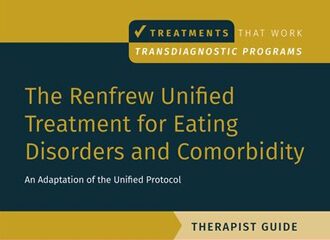Written By: Lynya Floyd
On a crisp April day in 2016, Julie, a 57-year-old social worker, was at a rally in Columbus, Ohio, with a group of colleagues and several busloads of kids. As a loud band played for the crowd, she leaned over to a trusted coworker and admitted two secrets she’d been carrying around with her. “I think I’m relapsing,” she said. “And I think I’m pregnant.”
Julie, a married mom with two daughters, was wrong about the pregnancy. But she was right about the relapse. As a teen, Julie had struggled with an eating disorder before eventually getting it under control as a young adult. Now, at 51, it was back again.
Everything had shifted for Julie four months earlier, in January, when her gynecologist handed her a pamphlet on menopause. After reading through it, she started doing more research on her own. Julie read about hot flashes, night sweats, and brain fog. “But out of all the symptoms listed, the one my brain focused on was weight gain,” says Julie. “I was terrified of weight gain because I didn’t want to get any larger.”
Julie started using an app to count her calories and track exercise—and it worked. “What’s your secret? You look fantastic!” coworkers asked Julie, noting her weight loss. “That just fueled my eating disorder brain,” she says.
By that April rally, four months after entering perimenopause, her calorie counting started to feel out of control. Julie knew she needed help. She couldn’t focus on work. All she could think about was how many calories she was consuming. Every morning she’d strip down and get on the scale to determine which meals she was going to skip, whether or not she might purge or use a laxative, and how many hours she’d spend on her home treadmill. When the treadmill broke, it sent her into a panic.
Yet, even when she admitted this relapse to her friend, she wasn’t entirely sure that it was the same thing she struggled with when she was younger. “I thought eating disorders were a young person’s illness,” says Julie. “I thought, ‘This can’t be happening. I already had that. Why would I have it again?’ ”
Where Puberty Meets Perimenopause
Most people—even those with firsthand experience—associate eating disorders with teens or young adults. They assume that anorexia, bulimia, binge eating disorder, and other specified feeding and eating disorders (OSFED) are relegated to younger women whose bodies are rapidly changing and who are experiencing wild hormone surges, not mature women heading into menopause. And while the vast majority of eating disorders—95 percent—first appear by age 25, they can also appear or reappear later in life.
In fact, you might be twice as likely to have an eating disorder in your 40s (3.6 percent) as to have breast cancer (1.5 percent), according to Val Schonberg, RD, a certified menopause practitioner. What puberty is for eating disorders in adolescence, menopause is for eating disorders in midlife, according to a 2023 review of recent literature on the epidemiology and treatment of eating disorders published in the journal Current Opinion in Psychiatry. Scholars have even coined the term “perimenopausal eating disorders” to explain the phenomenon.
There isn’t a one-size-fits-all explanation as to why some women develop an eating disorder—there’s no single gene or specific environmental or biological trigger that “causes” it to occur. But experts do know that during puberty, perimenopause, and menopause, several similar factors are at play: biological changes (i.e., hormonal fluctuations, altered brain chemistry, and physical changes), psychological shifts (i.e., a changing sense of identity), and external social pressures. While these factors may present differently at different life stages, each one—or all of them together—may increase a woman’s risk of an eating disorder.
“Menopause mirrors what was happening to you at the beginning of your reproductive life,” says Makeba Williams, MD, associate professor and vice chair for professional development and wellness in the department of obstetrics and gynecology at Washington University School of Medicine in St. Louis. Instead of getting their periods, women are getting hot flashes. Sometimes, the transition can make women “feel like their bodies are betraying them,” Dr. Williams adds. And research shows that the more severe a woman’s menopause symptoms are, the worse the eating disorder can be.
Midlife’s frustrating physical shifts can also coincide with psychological and social changes. “It’s a time of upheaval,” says Cynthia M. Bulik, PhD, founding director of the University of North Carolina Center of Excellence for Eating Disorders and codirector of the Center for Psychiatric Genomics. As women begin to hit perimenopause and menopause, some start to question their identity, struggle with big life stressors like caring for aging parents, divorce, age discrimination at work, and the death of loved ones.
Yet, despite all of this, midlife eating disorders are extremely under-researched, and experts are still trying to answer big questions like, Who’s most at risk? What are the triggers? And, What are the best treatments?
Finding A Way Forward
While knowledge about disordered eating in puberty is plentiful, medical professionals are only just starting to pay attention to this later pivotal time in a woman’s life. And for those who experience or study midlife eating disorders, the solutions still feel few and far between.
Margo Maine, PhD, wrote her first book about midlife eating disorders in 2005, using statistics mostly from magazine surveys. Twenty years later, she says the available data is basically the same. “We have interest and more awareness now, but there’s nothing really happening,” says Maine, a licensed psychologist and the coauthor of Pursuing Perfection: Eating Disorders, Body Myths, and Women at Midlife and Beyond. “And there’s very little research.”
With better data and insights, experts would be able to create more tailored solutions for midlife eating disorders, because treatment can be more complicated at 50 than at 15. For one, finding the time to leave your life behind and enter inpatient care can be much harder for an adult with a job and financial or family-related responsibilities. Plus, it’s not always easy for women to access critical, competent care from a PCP who understands how perimenopause and menopause affect a woman’s body.
Experts suggest that more outpatient programs for older women could be helpful. Currently, it can be hard (but not impossible) to find people who look like you and who can relate to your life stage in existing treatment programs. A lot of “group programs are full of 18-year-olds—it’s not a good place for an adult woman,” says Maine. (Not all experts agree. Some say the patient age gap can actually help women bond across generations over their shared experiences.)
However, at The Renfrew Center, an eating disorders treatment center with 19 locations across the U.S., there is specific group therapy for older folks (usually in their 30s and beyond) where women can find support talking about what it feels like to not meet the stereotype of an eating disorder patient, says Erin Birely, LCPC, alumni services coordinator at the center.
Read the full article here.




